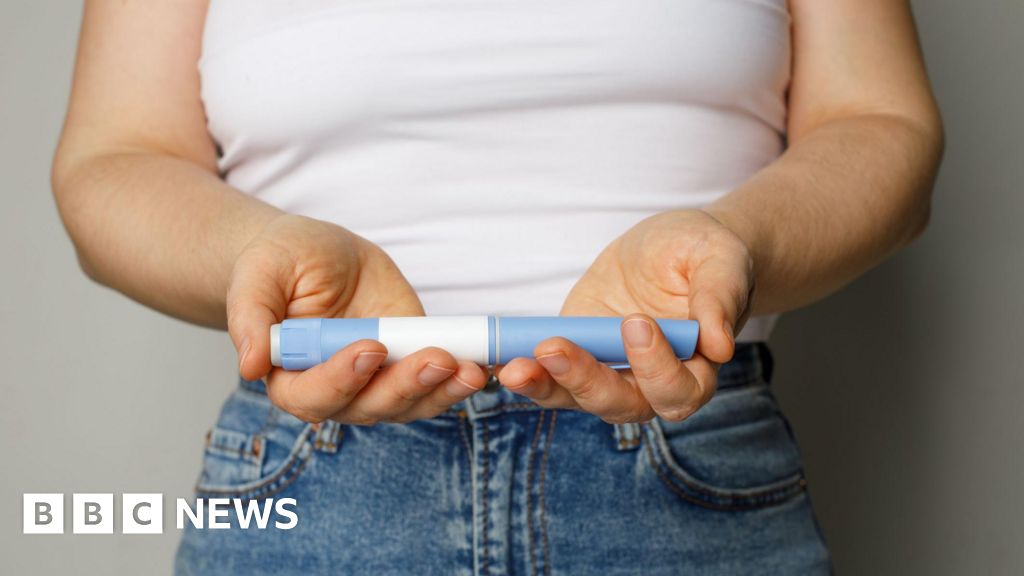Pharmacists are warning people not to buy fake weight-loss shots online as shortages of Ozempic are expected to continue into next year.
The National Pharmacists Association (NPA) suggested that this could result in “a surge in the sale of unlicensed medicines online”.
Weight-loss injections have become popular thanks to celebrity endorsements and before-and-after photos online, but fake ones can be dangerous.
Ozempic is the brand name for semaglutide, which helps regulate blood sugar levels in people with type 2 diabetes, but is increasingly being prescribed for weight loss in some countries.
Ozempic is currently in short supply due to high demand and because it is not approved for weight loss, some doctors are prescribing it off-label.
Ozempic, which is available on the NHS, helps people with type 2 diabetes but is also used to help lose weight because it acts as an appetite suppressant.
This has led to drug shortages and a rise in counterfeit vaccines.
Another brand of semaglutide, Wegovy, is approved for weight management and is also available on the NHS.
The NPA, which represents 5,000 independent pharmacies across the UK, is urging people to speak to their pharmacist or GP rather than buying medicines online from sellers that are not registered and regulated in the UK.
It also warned that shortages of Ozempic, made by pharmaceutical company Novo Nordisk, were likely to continue into next year.
NPA chairman Nick Kaye said: “Pharmacists are deeply concerned that the current medicine shortage crisis will lead to an explosion in the sale of unlicensed medicines online.”
“Stocks of Ozempic in UK pharmacies are running very low and it is vital that we continue to prioritise supplies to those who clinically need it most.”
“Given the precarious supply of this and other essential medicines, the risks to people seeking to order medicines from less reputable online sellers are much greater.”
Last year, the Medicines and Healthcare products Regulatory Agency (MHRA) reported a small number of people had been hospitalised with hypoglycemic shock or comas after using potentially counterfeit pens.
In January, the Department of Health and Human Services told health professionals not to prescribe the drug off-label for weight loss purposes and said existing stocks should be reserved for people with type 2 diabetes.
The company said the supply issues were caused by increased demand and off-label use.
“We don’t know how prevalent off-label prescribing is, [it happens]” Kay said.
He suggested checking whether online providers are registered with the British Pharmaceutical Association or the Pharmaceutical Association of Northern Ireland.
A Department of Health and Social Care spokesman said: “We strongly advise people not to buy controlled medicines from unlicensed online retailers or hairdressers as they may be dangerous.”
He said the MHRA would continue to take action against those trading medicines illegally and that the government was trying to tackle the obesity crisis by shifting the focus from treatment to prevention.

